If you have a new kindergartener, perhaps this scene happens in your family: Sudden crash when you get home. Screams. Tears. Droops. Falling asleep in the car or on the sofa. You know something's not right. What is it?
Kindergarten Crash. It's an extreme message that something's not right. Listen.
Last year I sent my youngest off to kindergarten. He was the first one in the family to go to all-day, every day kindergarten, and he rebelled with every inch of his 5-year-old little body. The long day wiped him out. When I picked him up from the bus he collapsed on the sidewalk, shrieked and dissolved in tears. At home, he had no energy to play. He just sat in a chair and stared, day after day, his toy pirates untouched.
He fell asleep for the night at 5pm.
Kids across the city I knew in other schools had the same reaction. One girl fell asleep in her car seat at 4:30pm. Another girl cried in the parking lot and screamed when she came home. Another kindergartener cried every day before school for 8 weeks. These are signs of kids showing extreme stress and exhaustion.
What was happening? These were the same kids who had been at all-day daycare or preschool for many years quite happily. It wasn't an issue of separation. They were used to being away from home all day. They were used to being in groups of young children. So what was so different?
Adult expectations. Daycare gave them naps, playtime, outside time, stories, songs and free play. The pace fit the child.
Kindergarten used to include naps and free play time. It used to be half day. Children haven't changed, but adult policies and expectations have. Kindergarten children are now expected to sit still most of the day, perhaps have one 20 minute recess, and focus on academics all day long.
What was different? As a fellow mother said "Less play, less food, less rest."
"They'll be fine," said one kindergarten teacher. "They just need a few weeks to build up their stamina." Build up their stamina?? No, we need to reset expectations to match the child. Kindergarten should be an in-between year between early childhood and grade school. Expectations need to shift accordingly.
If schools can't do it, parents need to take charge. There are alternatives to kindergarten. If it takes too long for school policies to catch up, families need to create new spaces for 5-6 year-olds now. What can you do instead of all-day, every day kindergarten?
- Don't go. Kindergarten is not mandatory.
- Pay for another year of daycare or preschool. You don't have to redshirt. Go directly to 1st grade next year.
- Homeschool the kindergarten year. It can be spent mainly in the sandbox.
- Search high and low for a kindergarten that still allows half days.
- Try a "Young Fives" program - but beware, these do not tend to be play-based, just mini academic kindergarten programs. However, many Young Five programs do allow half days.
- If you need more daycare, supplement Young Fives with after school care - this tends to be more relaxed and social and full of play.
- Find a charter school or alternate school that fits your child better.
- Pull your child out. Give him rest days, pick him up early for half days, or only send him 3-4 days a week. Some principals and teachers will support you with this.
Whether you work full-time or whether you are mostly home with your kids, there are kindergarten alternatives that can work for you. If your child is stressed and overly exhausted, her needs are not being met. Find a way where your child can relax and be the age she is today.
Avoid the Kindergarten Crash.
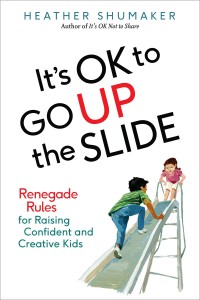 Read more about Kindergarten options and Kindergarten crash in It's OK to Go Up the Slide. If you have a kindergartener, this book was written for YOU.
Read more about Kindergarten options and Kindergarten crash in It's OK to Go Up the Slide. If you have a kindergartener, this book was written for YOU.
 Read more about what young kids need in It's OK Not to Share...And Other Renegade Rules for Raising Competent and Compassionate Kids.
Read more about what young kids need in It's OK Not to Share...And Other Renegade Rules for Raising Competent and Compassionate Kids.
What is your experience with long kindergarten days? Did they differ from preschool and daycare? How did your child cope?

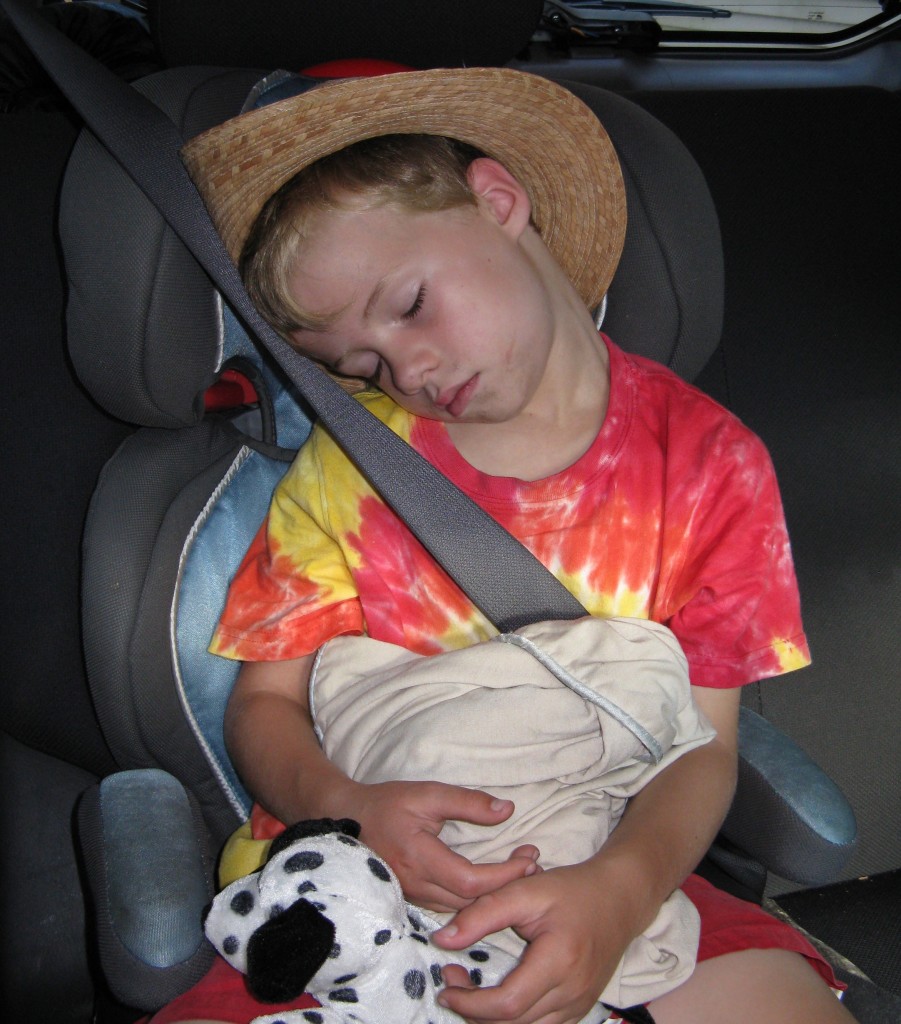
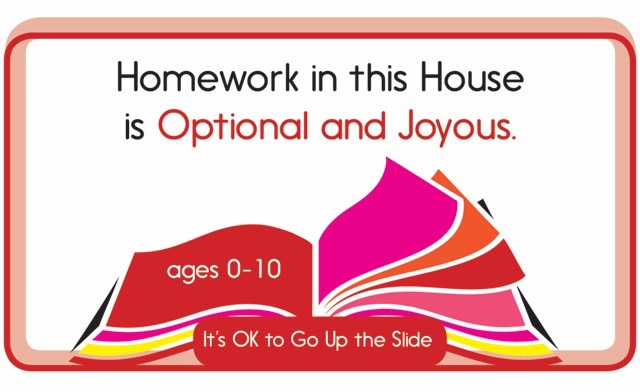
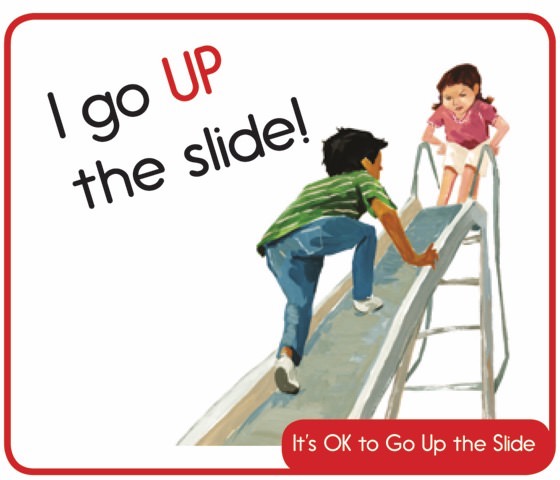
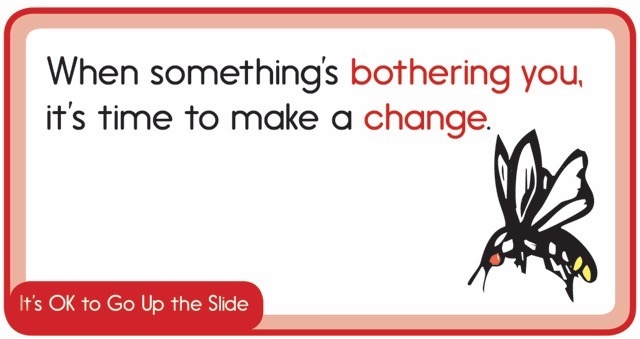
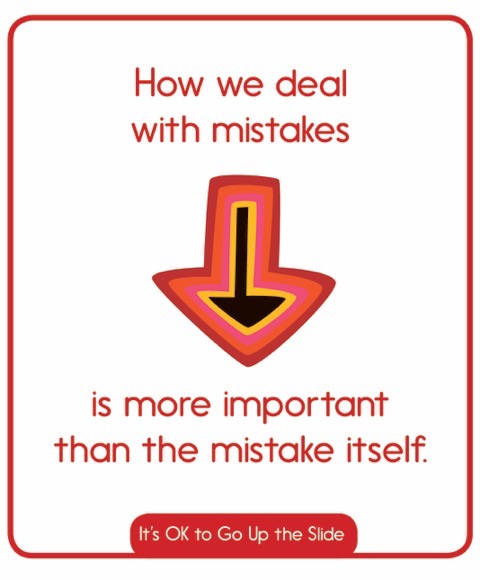
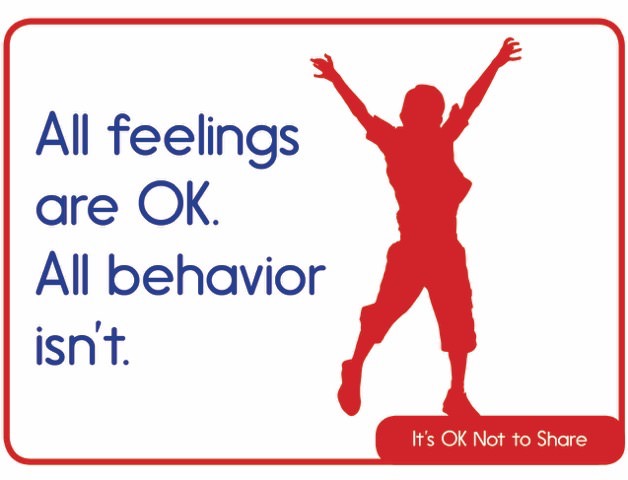
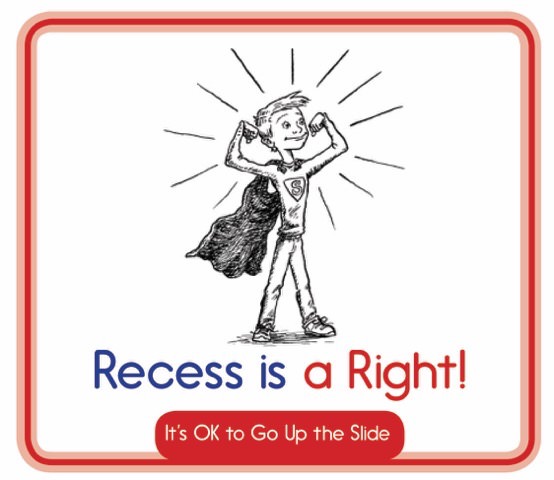
I totally agree with you Heather. Many elementary teachers don't know child development which I would think would be a requirement of their teaching position. A professor in my graduate school class asked me what I thought early childhood education was missing in their curriculum some 20 years ago. I said social and emotional development which is the most important in preschool. Lots of preschools have caught on. Too bad most elementary educators haven't learned this! What is wrong with the system??? Jan Waters
I've heard from many kindergarten teachers who know kids need something different - yet they are part of school systems that require a set curriculum. It's heart breaking for these fine educators who feel their hands are tied and can't give kids what they most need.
I observed with mixed emotions yesterday the beginning of all-day kindergarten as mandated by my home state of Minnesota. I don't know if it's required for the children to attend or just required of all schools to offer ADK, but I wasn't aware that kindergarten is optional. Perhaps that fact is conveniently hidden from public view by those for whom controlling children longer each day is in their best interest. If ADK is optional, I'm sorry that most parents leap at the chance to dump their kids into the hands of "the system" at such an early age.
At the same time, I am mollified by the fact that many kindergarteners in my town can now spend a full day, five days a week, away from their godawful home situations. We have a sizeable share of free- and reduced-price-lunch eligible families in town. As a former Big Brother to a Little who came from a poor home with little discipline, supervision, and parental guidance, I'm glad that maybe a few more kids can be influenced positively by more exposure to a safer, saner environment than they get at home.
But on balance, no kindergarten, or home schooling if school attendance is required, is the way to go. Most kids can easily be taught at home what they learn in school, outside of some social graces. But as you say, the vast majority of kids grow up in day care, so socialization is no longer the issue it once was.
Great post as always, Heather
Chris
Chris, yes, it's often presented as "of course you have to go to kindergarten." Minnesota's new law seems to similar - kindergarten is still OPTIONAL, but it's presented as the start of school. Ex: "Thanks to a law signed by Gov. Mark Dayton in May, all Minnesota families will have the option of sending their young children to all-day kindergarten free of charge." The previous law was that parents had "the option" to send their kids to half-day kindergarten.
The other issue you bring up is frequently used to advocate for early childhood programs. Especially for kids from dysfunctional homes, kindergarten and preschool need to be a time for social and emotional learning and processing.
School attendance is optional in Minnesota until age 7. I currently have my 4th one in the public school system. She came 13 years after the others and what s difference in the k-3years. We did an early 5program for her and she is doing well. The rush to push these academics down younger and younger just creates larger achievement gaps. I've been saying this since ADK started to become a thing. 🙁
I wish I had read this last year! I feel you because we went through the same and you put it in clear words!! And after this year I totally agree with you, the adults' expectations from a kindergardener are way too high, we need to readjust to their real age. My story has the twist that my girl has a developmental delay and all they could see were her behaviours. It was really hard to make them see further that she was really communicating, with her actions she was trying to tell that things were not good for her. I also agree with you that we need to read the signs and advocate strongly for our kids, that's what I did. In addition, I have decided to hold her back and do KG again, but this is related with her being born in the fall and her delay. Thanks so much for your blog!
Thanks for sharing your story, Erika. Yes, all behavior has meaning, and your daughter was certainly communicating. So glad you stood up for your child and found a solution that works for your family. All the best for this year.
Interesting. I have twins currently in ADK. One thriving, one in melt-down mode. I have lots of thinking to do. The "twin" issue complicates it even more. Leave one in and allow the other a shorter week? What does that do to the sibling dynamic? How will my 3rd grader and the twin Kindergartner react if I allow a shorter week for the melt-down Kindergartner? I'm quite positive they would ALL like to stay home 1-2 days/week. Hmmm...will be a good discussion for my husband and I.
Ah yes, the sibling question. Thanks for writing. Sounds as if you will have good discussions with your husband about this and I'm sure you'll come up with a good solution. Here's some ideas you might find useful or could help other families in a similar spot.
It's certainly easier with older siblings - acknowledge what you're doing and why. "This is what a 5-year-old needs. When you were 5, we made sure we met your needs. Now Jacob's 5. He needs more time to rest." You can tell your older child stories about when s/he was 5. Describe what her kindergarten year was like, what you did to meet her needs.
As the parent of twins, you certainly are used to navigating the extra challenges of fairness between twins. Besides fairness, there's individual needs. "You were both born on the same day, but different people have different needs. It's my job to support each of my kid's needs." There's no harm in giving both kindergarteners a rest day sometimes, but if one is truly thriving and loving ADK, you might try giving the thriving twin an option at early pick-up time. If s/he's already happily engrossed in class when you come along with an option to go home, your child might say "Oh, no, I want to stay and do this."
31 years ago I bought the book of Florida school laws! There I discovered that my rising age 6 in Nov son was only required to attend 4 hours per day thru age 6 (he was placed in an experimental pre-1st class so technically skipped K because of his age and school convenience). The principal was mad that we even asked for our rights, more upset when we wanted to continue the 4 hours throughout the year! The children had compulsory nap time for most of the afternoon so he may as well have been home with me and his younger brother.
Thank you for this post Heather - it is so sad to read of the same issues in early schooling around the world when 'all' academics know that play is best!
Four hours a day sounds perfect. Good for you for being a sleuth and standing up for your rights and what you knew was right. Love this story.
I love this post in many ways; parents have so many rights to decide how to educate their child, and many 5yo are NOT ready for a full academic day. That being said my daughter did great in full day kindergarten last year; but it was set up well. Three recesses (without the older elementary school students running over them at the playground), lunch after recess, snack, PE and music alternating days, as well as computer labs a few days a week, reading groups, math groups . . . lots of action built in and good quiet time corners in the classroom.
Three cheers for three recesses! Maybe that made all the difference. So glad your daughter had a good experience. Thanks for sharing.
What do you do if this is your 6 year old in 1st grade? The teacher says she's great at school but the minute we're home she melts down. She's in an awful mood the majority of the time no matter what I do or say and she's mean to her younger sister. I'm at a loss.
Sorry to hear your daughter is struggling. Many kids can hold it together in public but show their real stress for you at home.
As you know, she's sending you a signal something's not right. The first step is to observe her class. That may help you understand what she's reacting to. Sleep is another biggie. For her age, 10-11 hours of sleep is recommended, though my nearly 7-year-old still sleeps 12 hours. She may need more sleep than normal to avoid meltdown stress. Third, if you see nothing wrong in the observation, and she's getting 11+ hours of sleep a night, then you might want to start pulling her out for shorter days in the afternoon. Some kids can't take full school days, even in first grade. If teachers protest, ask your pediatrician for a doctor's note for "rest." Finally, I would ask her. In a calm moment, ask your child. Sometimes kids are very good at putting their finger on what's wrong. Good luck!
Hi everyone! I found this site when I started doing research because my daughter goes to all day kindergarten and by the end of the week she is flat exhausted! Nowhere in our area has half days anymore and I do not want her to miss out on the experience of going to kindergarten, because there are so many benefits to it, but there is one HUGE downfall of her going and that is the fact that they did away with "rest time" this year. Our other three children had rest time and did just fine, they did away with it this year and our kindergartener is struggling. I have been in contact with all the kindergarten parents to get their opinions and there are a lot of parents struggling as we are and then there are parents who's child isn't necessarily exhausted, but would still like to see nap or "rest time" implemented. After getting these responses I brought it to the school's principal and superindentent. Their answer was allowing our daughter to lay her head down on her desk if she feels tired, but what about all the other children who needs a break or what does the teacher do if she sees that the other kids lay their head down because they see it's okay for our child to? Is she going to tell those kids it's okay for one, but not okay for them? This is not a solution. I have since left a message for the supervisor of secondary education for our district and I'm awaiting a call back, but I have also called our State Senator to try and get something done. Unfortunately, we have to wait until January to submit anything, but at least we're going to get the ball rolling! Kindergarten is too hard on kids today, it's a 43 hour week (just the bus ride and the full day, this does not include from the time she wakes up until she falls asleep or any practice she needs for school) for my daughter without a break in the day from all the stimulation, it's too much. She is perfectly healthy and she gets a minimum of 10 hours of sleep a night. I've also been researching it relentlessly and have read a multitude of information explaining the health benefits and educational benefits (better retention of what they learn if they're not overly tired) of having if not a nap at least a "rest time". I hope we can do something for our kids and get them a much needed break during the day 🙂
Meanwhile my kid finds kindergarten easier than preschool and says she's playing all day. I'm looking for a more rigorous curriculum.